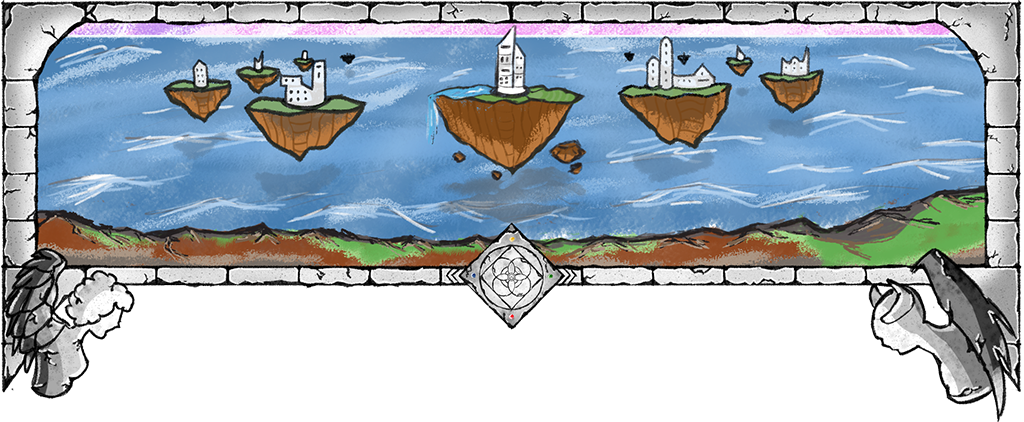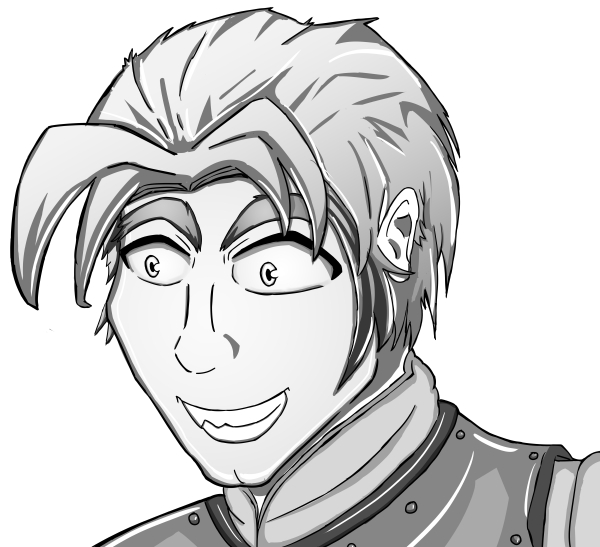Let’s elaborate a little more on our last post.
I’m going to help you understand how time doesn’t exist.
So I’m going to just break the bad news to you right now. You are in a time loop. Actually, it isn’t bad news at all — it is divine design. The problem is that you have somehow locked your time loop into the Human/Earth game.
The linearity that you associate with your experience has more to do with One Worldism, or certain rules that would be common to maintaining continuity/stability — rather than as a byproduct of being “less than divine.” Any game requires sequence, so divine beings are not somehow “beyond” experiencing sequence, which would rather make them more limited, no?
Because the belief in One Worldism is pervasive, the human collective tracks its stories — its daily dreams — in sequence. Or rather sequence is being imposed giving rise even to the concept of a calendar or a clock. This also has the effect of “slapping you” or grabbing your chin and redirecting you into this One Worldism story even when you want to look away. In other words, your commitments to time keep coming back and dragging you down.
Because there is just “one world” instead of “many” this necessitates the need for sequence — even if these sequences are themselves just close-copies of one another from which we are fooling ourselves. If I take a photo of a park and you take a photo of the same park, are they the same park? Only our agreement would make them so — so we are agreeing to the verisimilitude (the rules we impart to the application of our will) to make it so and behave as if we are going to the same place. This allows for a kind of intersection & communication between realms, but can also represents a horrific binding. Fixation can make a “common place to meet” into a prison if it is the only place we believe in (One World)– an interstice between beings that can becoming a binding (and blinding.)
Hm, how to explain this. Once again, let us turn to dreams.
Let us say that you remember your dreams for a week straight — a week in human terms — in great detail. Looking back upon these dreams, if you did not have the continuity of the human experience to lean upon, would you be able to impose a sequence upon these dreams? In other words — if we take the dreams on their own outside of “you as a human dreaming them” — then could any kind of sequential 1,2,3,4 order be put upon them? Perhaps only if you had a recurring dream, or dreams that seemed related– but likely, the dreams could be shuffled around and it would make no difference to you. You would not be able to tell “when” you dreamt the dream without the “tether” of ongoing Human/Earth narrative.
Hopefully you can see, then, that sequence depends on an “ongoing narrative.” Only a world of ONE can produce this ongoing narrative because “many worlds” would allow any kind of sequence.
You cannot just arbitrarily remove these commitments to time, because then you would become untethered — jumping from dream to dream.
We can imagine many “one” worlds, but this is irrelevant — even many “one” worlds, who possess their own sequence, would open the possibility to radically break sequences making time clearly an illusion. You could even go “back in time” in your alternative sequence — in other words, revisit the story-already-told and tell it differently.
In technical terms, Earth cannot violate the absolutes of Zero. Earth can only fool you into buying into the idea of time because the verisimilitude is so powerful you can’t break free without causing a collapse of your own cohesion — suffering.
One Worldism is how it does this and why you are bombarded everywhere into maintaining the illusion of the One World. Or, if you prefer, you are very comfortable with this state of affairs and keep reinvesting into it. This is also what keeps you coming back here — dream after dream after dream. It fixates you into this One World so that you continue to create your own sequence and put your “stakes” back into the same places.
This is not intended as an evaluation, per se. Rather, I want to point out that time itself is not our adversary. Time should be our ally. Time provides us with a variable continuum that allows experience to work at all. Without the illusion of time — the mechanism for which we “fool” our wills — there would just be a sea of chaos. But this does not change the fundamental truth that time is an illusion, or just a tool.
The problem arises when this tool becomes an altar — when the tool becomes the master. When our relationship with the tool has been inverted.
There are forces with a stake in keeping you invested for their survival. These forces need your attention (will) invested, otherwise they would collapse. We might consider these forces anything from bad habits/patterns/thoughts, ignorance, emotional states we keep feeding, to nefarious humans, beings, aliens, or demons. All of these terms are valid. These are all influential agents. They all provide the same basis from which to derive future behavior for ourselves.
These forces resonate at a particular level of cohesion which necessities the need for them to borrow from “outside” to maintain their coherence. YOU are the pillars for which these forces maintain the stability of their existence, because will is the executor of all creation. Your choice is what enables these forces to exist, to continue to exist and continue to create problems.
Whether these forces are themselves conscious or not, it does not matter — the effect is the same. These forces act out the agendas — or impose agendas upon those influenced by them — hammer their nails — in accordance with this “survival need.” If you play along — and when you are fixated, you are playing along — then you are providing the resources to scaffold and construct that reality.
There is no straight-forward means by which we can extricate ourselves from this situation because shortcuts are always deeper holes that create more incoherence than coherence. All of us are bound up in stories which we cannot remove without becoming “lost in time.” We have weaved a tangled mess of dependencies that we cannot easily replace. And so our lives are often a practice of two steps forward, one step back — an iterative process of refinement and testing.
It is made frustrating because we can, even now, know the end product — see it so clearly as to be able to feel it — yet must still deal with a tangled mess that seems to have no purpose — indeed, that often feels like it was made by gremlins just to slow us down. There is a “force” constantly trying to re-tangle the knot while you are untangling it.
Let’s go back to how this is a time loop. Let’s use the movie Groundhog’s Day as an example — but let’s walk through it with a different perspective.
In the movie Groundhog’s Day, Phil Connors is trapped in the town Punxsutawney, where he relives the same day over & over. Phil is kind of miserable guy who hates his life and the stage that is set acts a means of transformation. Phil cannot escape from the time loop until he works on himself and becomes a better person.
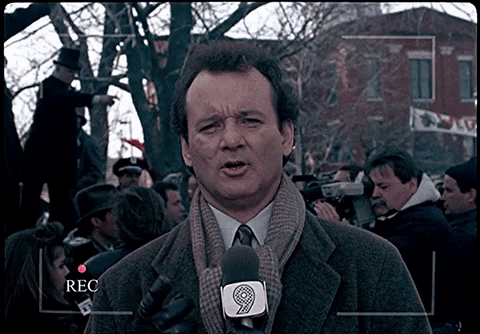
What is interesting is what this movie can reveal when you give it just a little bit of contemplation. It is a great philosophical exercise.
At the start of the movie before Phil goes to sleep in Punxsutawney, he is in the “real world.” During his many lives in Punxsutawney, consider that he is not in a time loop, but stuck in his own mind. This ornamentation will help you understand some important concepts.
While Phil is stuck in Punxsutawney, he is in what I call an “entropy box.” It is a place “without potential”, or destined to end — to die. Phil is exploring “all the timelines” that do not work (allowing entropy to unfold, exploring all outcomes.) He is figuring out how to become coherent in a way that does not end in death (or imprisonment, or lack of fulfillment — all forms of death, etc.)
And in this place, there is no free will for anyone except Phil himself. How can there be free will when Phil — who he himself admits — is god — where he has the time to come to know “all outcomes?” And thus the people of Punxsutawney just become puppets, or dolls for which Phil to play with.
Phil “cannot proceed” though until he honors free will & potential (until he creates it himself! see?) And he cannot do this while he continues to “remove the unknown.” By dying and reliving the same day, by coming to know all the people and events, he spirals to his own demise over and over.
He suffers & dies because he knows everything, or because he becomes tired of playing with toys who always behave within his expectation. The world has no ability to dissent, or as as exactly “cold and grey” as he expects.
And this state of affair arises because of his character (personality) at the start of the movie. He is miserable, victimizes himself, sees others as tools, attempts again and again to assert an inverted method of control, and as the movie goes on, resists his looping time as outside of himself rather than accepting himself as the primary agent. He is utterly fixated into his external reality.
It is not until he begins to live “from within” — to surrender & accept his situation — that he opens the door to allowing The Other to have free will and potential — to allow the people to write their own stories. And in so doing, he creates a resonance where as he brings out the best of himself, he brings out the best in others.
We call this “coherence” or self-actualization. Thus Phil reintroduces potential and frees himself from the time loop.
Whilst he is stuck in the time loop, no one is real. They can’t be because they have no agency whilst Phil is living in a time loop. They are “as Phil expects.” Phil must remove his judgment and expectation before these people can stop just being “xeroxes” of Phil’s expectations.
Also this is an important note — the time loop does not end when Rita spends the night with Phil on the last day. Rather, the time loop has already ended on the last (full) day when Phil wakes up. Why? Because otherwise Phil would still be playing with puppets. On that morning, he has “self-actualized” — found himself — and is finally living free — he is not trying to manipulate, cheat, or circumvent his own life — he has accepted and internalized. The entire last day Phil has already left the time loop and is “real.” This makes even more sense if you are capable of seeing the whole experience as granular, rather than some kind of “bubble” that Phil is trapped in — it is more like his whole life — his whole journey from mortal to immortal — is represented by the unfolding of Punxsutawney.
Here is something also interesting: even when Phil “knows everything”, he cannot seem to violate free will even when he tries. This is exemplified when he tries to woo the women and keeps getting slapped. It is only when he allows himself to act intuitively that his life resumes. Even “within the time loop” he has moments where he allows himself to slip into an intuitive mode and experiences progress.
Consider now that YOU are living in a Groundhog’s Day except instead of the stage being Punxsutawney — it is the entire universe. And instead of there being a clear beginning & end to the movie, you are an eternal being who is constantly going in & out of time loops — constantly “xeroxing” people through your own limitations / flaws and in-congruence– and this all moves & dances together moment to moment rather than in discernible “lengths of times.”
And what are you doing? You’re looking for the holy grail.
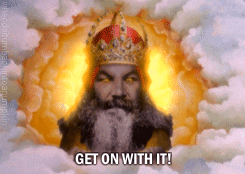
YOU are figuring out how to create a paradigm which does not end in death (a Nonsense state) — and why you “wake up” everytime you die back in “Punxsutawney.” Is death just a change in your life? Is death an actual death — to reincarnate into another life? Is death a period of intense depression or suffering? Is death just a new perspective? YOU decide. They can all be true. It is YOUR dream — your story.
You cannot proceed until you can become congruent with your own story not because anyone is holding you back but because there is nothing to proceed to — your story is incongruent, incoherent, or bleeds out like a ship with a hole in it.
Who is deciding it is congruent but YOU? But neither can you just decide that you are congruent out of the blue, because this is the power of verisimilitude and the byproduct of the Buffer — of the acts of will that must resolve. You cannot lie to your own heart. Your heart knows congruence.
Our problem is that we have trained our wills to lay down entire networks and highways which we have to travel to resolve.
This is also a bit of introduction to the concept of convergence & divergence, or how we begin to free our minds from time & the ONE WORLD concept. When people play a role in your life, you are also playing a role in their life — in perfect divine order — because of free will consent. It happens “automagically.” Second-guessing yourself or imparting weights after-the-fact is how you “notice” when you are beginning to step into a timeline-exploration (an entropy box — death.) This is when you need to put your hands back on the wheel.
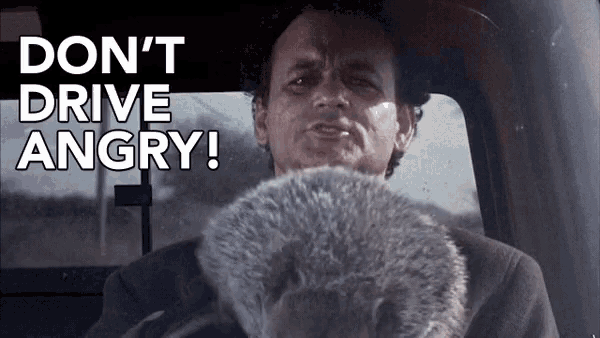
Where does this leave us, then? We must examine our commitments to time. How do we escape time? It isn’t that we want to escape time — we need time. Time provides continuum. But we do not need time at a singular rate, nor do we need time that “bludgeons” us over and over back into the same experience.
We want to master time — to make it optional — to put it into service of us, rather than have it be our master. We may be able to avoid becoming Drunk Librarians, but without the mastery of time, we become Librarians with OCD — moving from one book on the shelf to the next out of a slavish compulsion. It is impossible for a OCD Librarian to conceive in a break in continuity, or to be imaginative enough to connect different books from different sections together. God forbid you are Drunk & OCD.
I have written about this a bit before. It involves “uninverting” a lot of this inverted world and trusting/surrendering to a sense of within. It involves recognizing your altars and breaking them. It involves a sense of wonderment, or total commitment to your heart, which products an effect that makes you feel “outside time.” And the better you can do this, the more you can pull it through the Buffer and add it to baseline.
